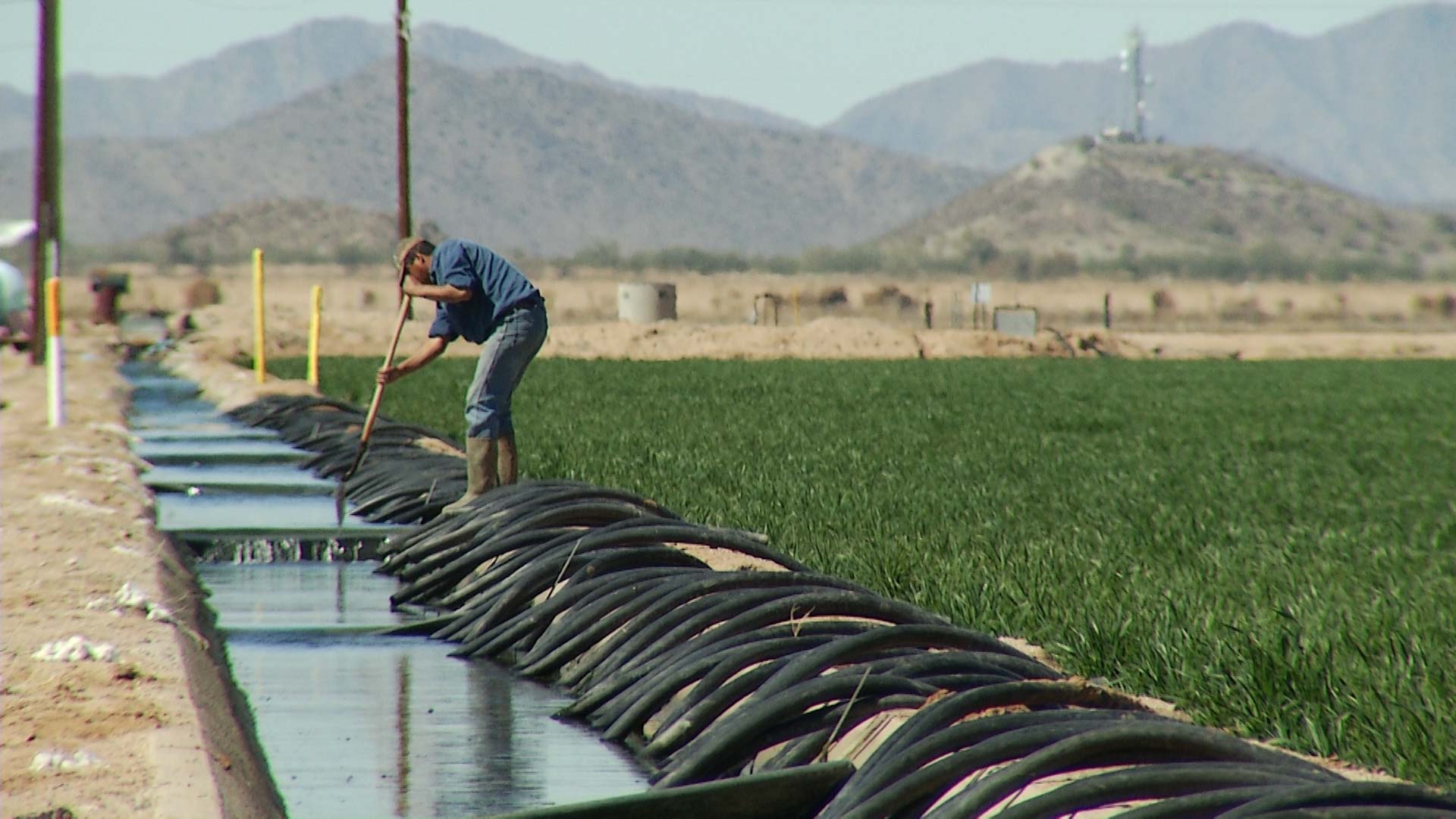Center for Biological Diversity and others call on Congress to take federal action against the climate-driven heat emergency
Center for Biological Diversity and others call on Congress to take ... AZPM


Immediate Relief Requested to Address Climate-Driven Heat Emergency

In response to the climate-driven heat emergency, over 170 organizations have come together to request immediate relief through two letters sent to Congress, governors, and regulatory officials nationwide. The Center for Biological Diversity is leading this effort, with a strong emphasis on achieving the Sustainable Development Goals (SDGs).
Emergency Relief Package
The organizations are urging legislators to pass an emergency relief package that includes the following measures:
- Implementation of a heat-based moratorium on electricity, water, and other utilities from being shut off
- Increased funding for low-income household assistance
- Establishment of cooling centers and drinking water spaces for at-risk populations, such as laborers, migrants, and unhoused populations
Gaby Sarri-Tobar, a justice campaigner for the Center, highlighted the organization’s efforts to build a coalition of organizations from across the country to advocate for a utility shut-off moratorium since the start of the pandemic. Sarri-Tobar emphasized that this crisis disproportionately affects frontline communities, communities of color, and low-wealth communities. These communities also experience higher rates of heat-related illnesses, including heart and respiratory diseases.
Activate 48: Leading the Fight in Arizona
Among the 172 signatories is Activate 48, an Arizona-based organization comprising a coalition of the state’s four largest movement-building groups. Activate 48 focuses on various issues, including environmental justice and engaging with marginalized communities, such as young people and people of color, who are often left behind by the political process.
Laura Dent, the coalition director for Activate 48, emphasized that Arizona is at the crossroads of the climate crisis. The extreme heat is significantly impacting families across the state, making it crucial for their coalition to join the call for action from Congress and governors.
Protecting Workers
The letters also emphasize the need for protections for workers operating in extreme heat. Currently, there are no federal or state-level protections in place. This issue gained renewed urgency after the tragic death of 26-year-old farmworker Dario Mendoza in Yuma during a recent heat wave.
Laura Dent stressed that addressing the new normal of extreme heat requires significant systemic changes and a transition away from fossil fuels. Real solutions, such as renewable energy, energy efficiency, and climate-resilient utility systems, need to be prioritized to ensure families have access to reliable electricity during these disasters.
Addressing Electricity Disconnections
Data reveals that between 2020 and 2022, there were over 5.7 million instances of electricity disconnections for non-payment throughout the United States. This highlights the urgent need to address the issue of utility shut-offs and ensure access to essential services for all communities.
SDGs, Targets, and Indicators
-
SDG 7: Affordable and Clean Energy
- Target 7.1: By 2030, ensure universal access to affordable, reliable, and modern energy services.
- Target 7.3: By 2030, double the global rate of improvement in energy efficiency.
- Indicator: Instances of electricity disconnections for non-payment.
-
SDG 11: Sustainable Cities and Communities
- Target 11.5: By 2030, significantly reduce the number of deaths and the number of people affected and substantially decrease the direct economic losses relative to global gross domestic product caused by disasters, including water-related disasters, with a focus on protecting the poor and people in vulnerable situations.
- Indicator: Heat-related illnesses such as heart and respiratory diseases.
-
SDG 13: Climate Action
- Target 13.1: Strengthen resilience and adaptive capacity to climate-related hazards and natural disasters in all countries.
- Target 13.2: Integrate climate change measures into national policies, strategies, and planning.
- Indicator: Extreme heat crisis resulting from reliance on fossil fuels.
Table: SDGs, Targets, and Indicators
| SDGs | Targets | Indicators |
|---|---|---|
| SDG 7: Affordable and Clean Energy | Target 7.1: By 2030, ensure universal access to affordable, reliable, and modern energy services. | Instances of electricity disconnections for non-payment. |
| SDG 7: Affordable and Clean Energy | Target 7.3: By 2030, double the global rate of improvement in energy efficiency. | N/A |
| SDG 11: Sustainable Cities and Communities | Target 11.5: By 2030, significantly reduce the number of deaths and the number of people affected and substantially decrease the direct economic losses relative to global gross domestic product caused by disasters, including water-related disasters, with a focus on protecting the poor and people in vulnerable situations. | Heat-related illnesses such as heart and respiratory diseases. |
| SDG 13: Climate Action | Target 13.1: Strengthen resilience and adaptive capacity to climate-related hazards and natural disasters in all countries. | Extreme heat crisis resulting from reliance on fossil fuels. |
| SDG 13: Climate Action | Target 13.2: Integrate climate change measures into national policies, strategies, and planning. | N/A |
Analysis
The article addresses or connects to the following SDGs:
- SDG 7: Affordable and Clean Energy
- SDG 11: Sustainable Cities and Communities
- SDG 13: Climate Action
Based on the article’s content, the specific targets under these SDGs can be identified as:
- Target 7.1: By 2030, ensure universal access to affordable, reliable, and modern energy services.
- Target 7.3: By 2030, double the global rate of improvement in energy efficiency.
- Target 11.5: By 2030, significantly reduce the number of deaths and the number of people affected and substantially decrease the direct economic losses relative to global gross domestic product caused by disasters, including water-related disasters, with a focus on protecting the poor and people in vulnerable situations.
- Target 13.1: Strengthen resilience and adaptive capacity to climate-related hazards and natural disasters in all countries.
- Target 13.2: Integrate climate change measures into national policies, strategies, and planning.
The article mentions or implies the following indicators that can be used to measure progress towards the identified targets:
- Instances of electricity disconnections for non-payment as an indicator for Target 7.1 under SDG 7.
- Heat-related illnesses such as heart and respiratory diseases as an indicator for Target 11.5 under SDG 11.
- Extreme heat crisis resulting from reliance on fossil fuels as an indicator for Target 13.1 under SDG 13.
The information from the article supports the analysis by highlighting the need for relief measures, such as a heat-based moratorium on utilities shut off, funding for low-income household assistance, and the establishment of cooling centers and drinking water spaces for at-risk populations. These measures are directly related to the targets under SDGs 7, 11, and 13. Additionally, the article mentions the impact of extreme heat on communities, particularly frontline communities, communities of color, and low-wealth communities, which aligns with the focus on protecting the poor and people in vulnerable situations mentioned in Target 11.5. The article also emphasizes the need to transition away from fossil fuels and invest in renewable energy and climate resilient utility systems, supporting Target 13.1. Finally, the mention of instances of electricity disconnections for non-payment provides an indicator for measuring progress towards Target 7.1 under SDG 7.
Behold! This splendid article springs forth from the wellspring of knowledge, shaped by a wondrous proprietary AI technology that delved into a vast ocean of data, illuminating the path towards the Sustainable Development Goals. Remember that all rights are reserved by SDG Investors LLC, empowering us to champion progress together.
Source: news.azpm.org

Join us, as fellow seekers of change, on a transformative journey at https://sdgtalks.ai/welcome, where you can become a member and actively contribute to shaping a brighter future.







